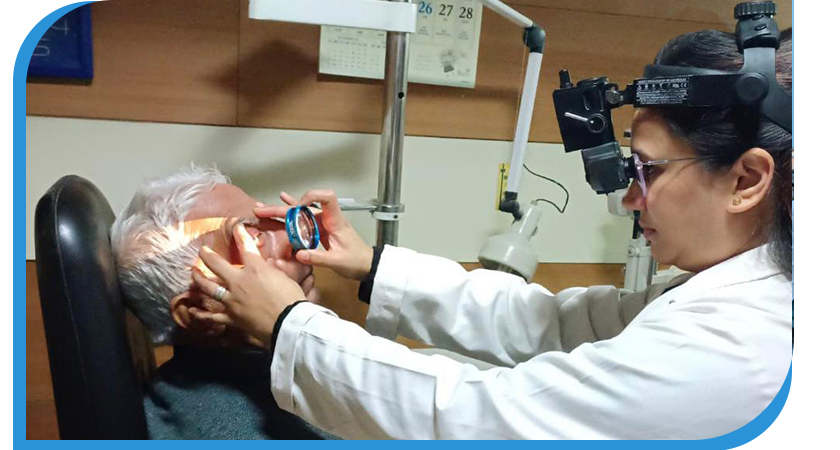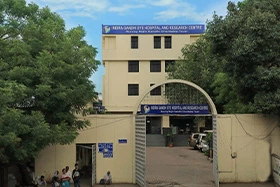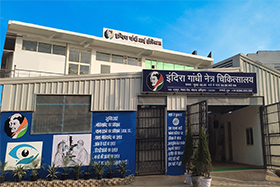- Fundus photo
- Fundus fluorescein angiography
- ICG
- Lasers- PRP, FOCAL, GRID, ROP LASERS, barrage,YAG hyaloidotmy
- OCT
- OCTA
- Email: enquiry@indiragandhieyehospital.com
- Call: 01242710271
Specialties
Retina and Uvea
We, at Indira Gandhi Eye Hospital and Research Centre, have a fully functional retina department which conducts surgeries and medical management of all retinal diseases in all its branches. We are the major referral centre for all cases of retinal detachment, diabetic retinopathy, age-related macular degeneration, macular hole surgeries, retinal vein occlusions, uveitis, optic nerve diseases, etc. Our team, compromising highly skilled and well-qualified retinal surgeons trained at the best hospitals of country, provides the best and most affordable management possible for all retinal diseases. Our mission is to treat as many people as possible and to make vitreo-retina services within reach for all
The human eye is comparable to a camera with a lens in front and a film behind (which is called retina). The retina is one of the four important structures of the eye which is responsible for good quality and quantity vision and is placed approximately 2 cm behind the cornea. The light entering the eye reaches the retina and is further relayed via the optic nerve to our brain. Thus severe vision loss can occur in diseases affecting the vitreous, retina and optic nerve.

Technical set up
Diagnostic
- NCT
- AT
- PDT
- Stellaris Vitrectomy
- Zeiss Green Laser
- 3Netra Fundus Camera
Treatment
- Antiglaucoma medications
- Laser Procedures
- Surgical Proceduress
Procedures
Intravitreal injections - we offer all injections available in the market at the best price possible for retinal diseases such as age-related macular degeneration, diabetic macular oedema, cystoid macular oedema, vitreous haemorrhaged, choroidal neo vascular membrane, IPCV and retinopathy of prematurity. The following injections are available:
- BEVACIZUMAB ( AVASTIN)
- RANIBIZUMAB( ACCENTRIX, RAZUMAB, VISUMAB)
- AFLIBERCEPT( EYELEA)
- BROLUCIZUMAB(PEGANEX)
- IVTA
- OZURDEX IMPLANT
- POSTERIOR SUBTENONS
- PRP Laser
- Barrage Lasers
Surgeries
- Retinal detachment surgery: scleral buckle surgery, primary vitrectomies, buckle vitrectomies, complicated retinal detachments, pneumatic retinopexy, coloboma RD, giant retinal tears, combined mechanism retinal detachment.
- Diabetic vitrectomies: tractional retinal detachments, advanced proliferative damages, non resolving edema
- Membrane peels: ILM peel for macular hole, epiretinal membrane peel, surgery for vitreo macular tractions
- Surgery for optic pit
- Iol and nucleus drop surgeries
- Media clearing surgeries: for vitreous hemorrhage, tersons sundrome, core vitrectomies, PHPV associated vitrectomies, floaterectomy




